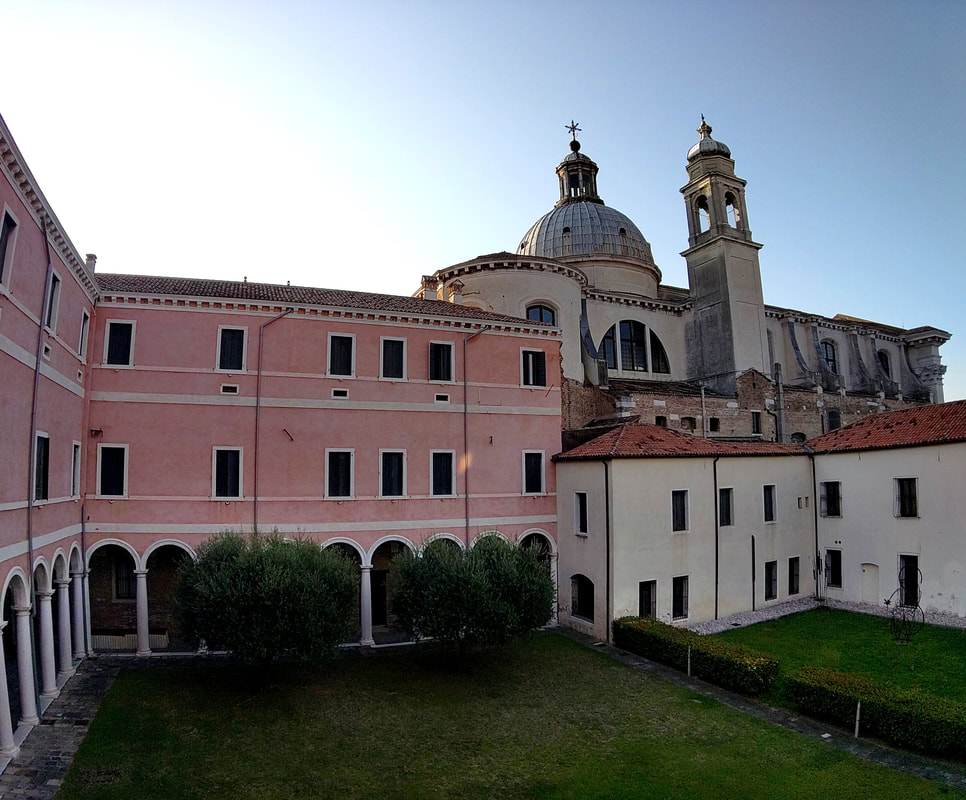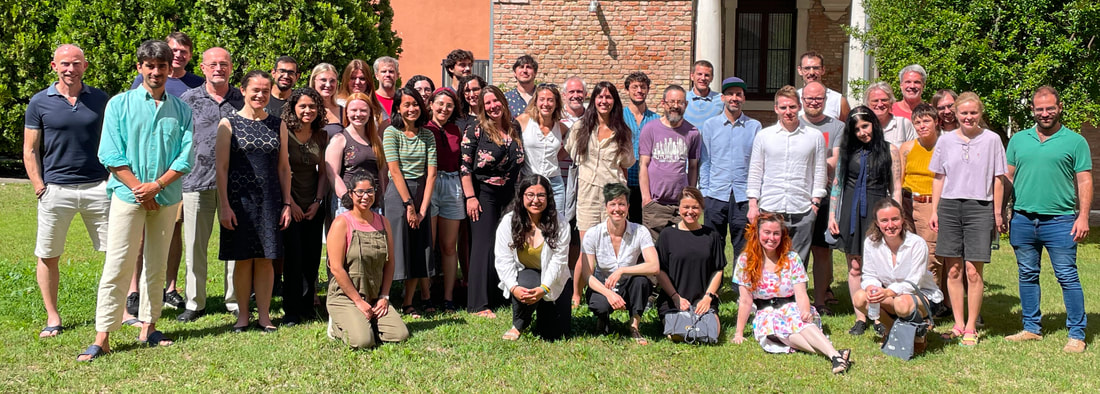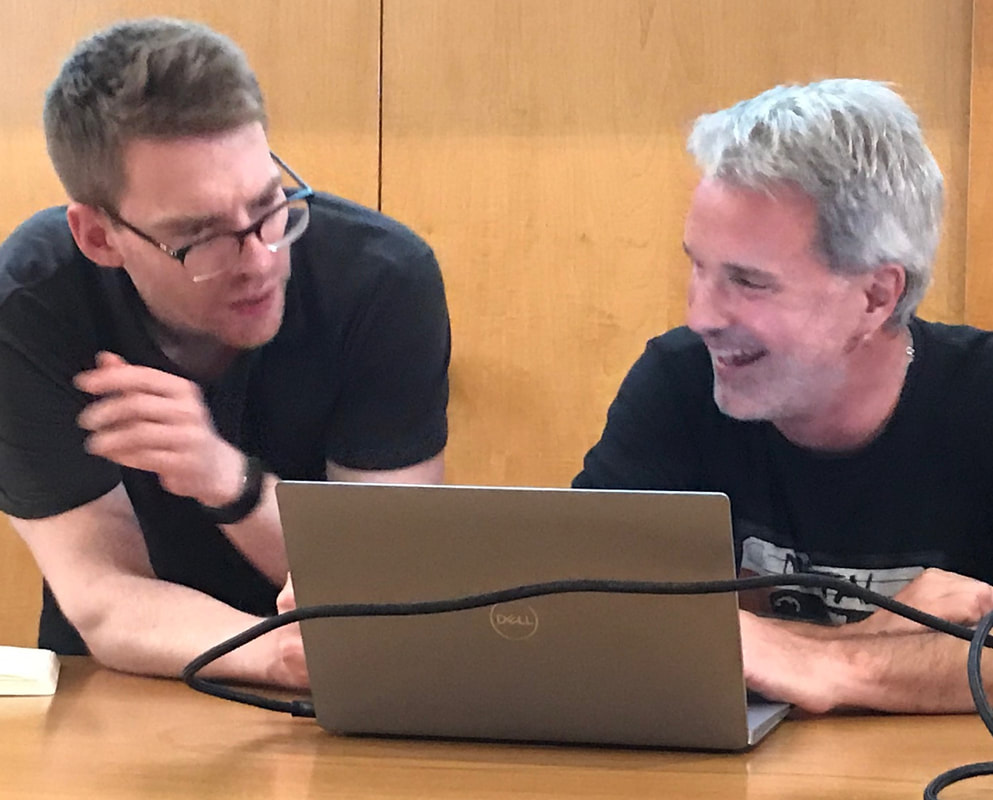The future of evolutionary-developmental systems biology Every two years, I co-direct a theoretical summer school on topics related to evolutionary developmental and systems biology at the Centro Culturale Don Orione Artigianelli in Venice. My current partner in crime is philosopher of science James DiFrisco. Future editions of the school will be co-organized by us and Nicole Repina. Since 2019, the school is funded by the European Molecular Biology Organization (EMBO) (in past years jointly with the Federation of European Biochemical Societies). Centro Cultural Don Orione Artigianelli, Venice. Since its first iteration in 2009, the summer school has become an established and highly valued institution in the field of evolutionary biology. It is targeted at early stage researchers (graduate students, postdoctoral researchers, and junior group leaders) interested in conceptual challenges and theoretical aspects of the field. Its participants not only include evolutionary theorists, but also empirical researchers from evolutionary developmental biology and other areas of biology, computational and mathematical biologists, as well as a contingent of philosophers. It is great to see that an increasing number of past participants are having a real impact on the field, publishing good theoretical work and contributing to urgently needed reflections and discussions on how to study both the sources and consequences of the variation that drives evolution by natural selection. This year's edition of the summer school took place at Don Orione from August 21 to 25, 2023. Its focus, for a change, was not on a particular conceptual problem, but on the various challenges that face us moving forward in our field. For this purpose, we subdivided the program of the school into distinct themes, one each day: On Monday, we discussed the role of genetic causation in complex regulatory systems, with contributions from James DiFrisco and Benedikt Hallgrímsson. While James criticized the gene-regulatory-network metaphor, examining how to embed the dynamics of gene expression in its tissue-mechanical context, Benedikt focused on the effect of genes on the evolvability of phenotypic traits, questioning many of our deepest assumptions (e.g. genes as regulators) in this context. On Tuesday, we looked at the relationship of evolutionary developmental and systems biology with evolutionary genetics. Dani Nunes introduced methods used for mapping actual genetic variation within populations and between species, highlighting the problem that, in the end, we are still limited to examining a small number of candidate genes, while knowing full well that natural variation is highly polygenic (if not even omnigenic). Günter Wagner reminded us that "nothing in evolution makes sense except in the light of cell biology," focusing on the evolution of cell types and the role this plays in overcoming the homeostatic tendencies of the organism. Mihaela Pavličev looked at the many uses and limitations of the genotype-phenotype map metaphor in the context of developmental and physiological systems that span many levels of organization. On Wednesday, the school focused on the use of dynamical systems modeling in the study of the genotype-phenotype map. Renske Vroomans introduced us to the methodology of evolutionary simulation, and how it can help us understand the origin of evolutionary novelties that lead to macro-evolutionary patterns. James Sharpe showed how data-driven dynamical models of regulatory and signaling networks in their native tissue context can reveal hidden homologies in the evolution of the vertebrate limb. Veronica Grieneisen, in turn, highlighted the importance of multi-scale modeling for understanding the properties of developmental processes beyond the genotypic level. On Thursday, our school turned to organism-centered approaches to evolution. Graham Budd revisited George Gaylord Simpson's work on the tempo and mode of evolution, stressing the importance of rate differences and survivorship bias for the study of evolutionary patterns such as the Cambrian Explosion. Denis Walsh advocated an agential perspective on organism-level evolution that allows us to countermap the limitations of more traditional reductionist approaches. My own contribution grounded this approach in an organizational account of the organism, arguing that only organized systems (organisms) but not naked replicators can be true units of evolution. On Friday, the last day of the course, we examined the role of technological versus conceptually driven progress in biology. Nicole Repina talked about the disconnect between 'omics' and other quantitative large-scale data sets and our ability to gain insights into the self-organizing capabilities and variability of cellular and developmental systems. As the final speaker of the course, Alan Love criticized the idea that progress in biology is predominantly driven by technological progress, argued for a broad conception of "theory" in biology, and highlighted the need to foreground its role in identifying problems across biological disciplines. Morning lectures were complemented by intensive journal clubs and small-group discussions in the afternoons, plus an excursion to the (in)famous spandrels (pendentives, actually) of San Marco, and our equally (in)famous (and never-ending) evening discussions at Osteria all Bifora on Campo Santa Margherita. This year's cohort of students and teachers. In summary, this year's summer school touched on the following topics:
The organizers of the school in action! Improvising their summary lecture on the fly... All in all, we are looking back on a very successful edition of the school this year. The number of applications has been back up to pre-COVID levels, and feedback was overwhelmingly and gratifyingly positive. But most important of all: we greatly enjoyed, as we always do, to interact with the most talented and enthusiastic young individuals our field has to offer. We are very much looking forward to future editions of the summer school and will do everything we can to keep this wonderful institution going! See you in Venice in 2025!
0 Comments
Leave a Reply. |
Johannes Jäger
Life beyond dogma! Archives
May 2024
Categories
All
|
Proudly powered by Weebly



 RSS Feed
RSS Feed